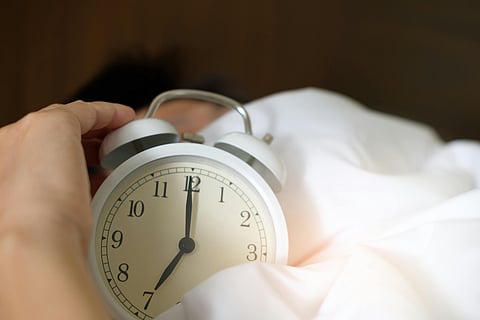

BENGALURU: Waking up to the sound of an alarm clock in the morning can cause a significant surge in blood pressure, with a 74% increase compared to those who wake up naturally, according to a recent study by UVA Health.
This abrupt awakening, driven by alarms, can trigger a “morning blood pressure surge,” a routine rise in blood pressure that occurs naturally but is significantly heightened by sudden wake-ups, the study stated.
This spike in blood pressure puts stress on the heart and veins, potentially activating the “fight or flight” response, which forces the heart to work harder and can lead to fatigue, breathing trouble and other symptoms.
The study, conducted by a nursing student for the University of Virginia Health System, which conducts monthly surveys, warns that this heightened blood pressure surge could lead to serious heart issues, including heart attacks or strokes.
The effects are even more pronounced among individuals, who already have heart conditions, as the additional stress from an abrupt wake-up can escalate into a severe health emergency.
Sudden waking up triggers stress hormones
For those with cardiovascular issues, insufficient sleep combined with being jolted awake by an alarm can intensify these risks, making the early-morning blood pressure surge particularly dangerous. The research also highlighted the broader impact of alarm-induced wake-ups on overall well-being. Sudden awakenings increase stress levels and trigger stress hormones such as cortisol and adrenaline, disrupting the body’s natural sleep cycle and leading to “sleep inertia,” where individuals feel groggy and disoriented for up to two hours after waking. This can affect mental health and mood. Inadequate sleep combined with abrupt awakening from an alarm can worsen the problem, activating the sympathetic nervous system and causing symptoms such as fatigue, shortness of breath, anxiety, neck stiffness and in severe cases, nosebleeds and headaches.